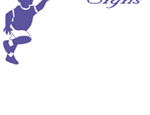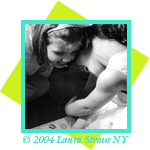|
Children with developmental
disorders are referred routinely to specialists and other clinicians for diagnostic
testing. Diagnostic tests and other clinical evaluations help to determine the
nature, scope, and intensity of each child’s unique abilities and deficits. This
section will explore the types of diagnostic testing recommended for children
with autism spectrum disorders.
As stated in the
Practice Parameter for the Screening and Diagnosis of Autism, “Although
educators, parents, and other health care professionals identify signs and symptoms
characteristic of autism, a clinician experienced in the diagnosis and treatment
of autism is usually necessary for autism spectrum disorder (ASD) is not a one-time procedure; it is a complex
process. The practice parameter outlines the following types of evaluations:
- Surveillance
and screening
(See Screening Guidelines)
- Diagnosis
It is recommended that the formal diagnosis of autism
is made by a physician or clinician who has extensive experience with, or specializes
in, ASD,
such as a pediatric neurologist, a developmental pediatrician, a child psychologist
or child psychiatrist. See Specialists for more information.
- Medical and neurologic evaluation
This includes “a perinatal and developmental history” as
well as
a “physical and neurologic examination.” This can be performed by
an experienced physician, a developmental pediatrician, or a pediatric neurologist.
- Evaluation and monitoring of autism
As part of a team or
multidisciplinary approach, specialists are called upon to evaluate and
monitor a child after diagnosis. See Specialists for more information.
- Speech, language, and communication evaluation
A comprehensive speech-language-communication evaluation should be performed
on all children who fail language developmental screening procedures. These
evaluations should be conducted by an experienced speech-language pathologist.
- Cognitive and adaptive behavior evaluations
Tests such as
the Vineland Adaptive Behavior Scales and the
Scales of Independent
Behavior “should be performed in all children with autism by a psychologist
or other trained professional.” These evaluations “provide an overall
index of ability” including social, verbal, and non-verbal skills.
- Sensorimotor and occupational therapy evaluations
Depending
on the presenting needs of a child, a physical therapist or occupational
therapist may assess a range of skills, including: fine motor, gross
motor, and
sensory processing. For children thought to have sensory integrative dysfunction,
the Sensory Integration and Praxis tests may be required.
- Neuropsychological, behavioral, and academic assessments
These
assessments may be performed by a psychologist or other experienced clinician.
A child’s behavior, cognitive abilities, and social skills are core elements
of these evaluations. An “assessment of family resources” is also
important in order to determine if additional supports or resources may be
needed.
Back to top
Next page =>
|




